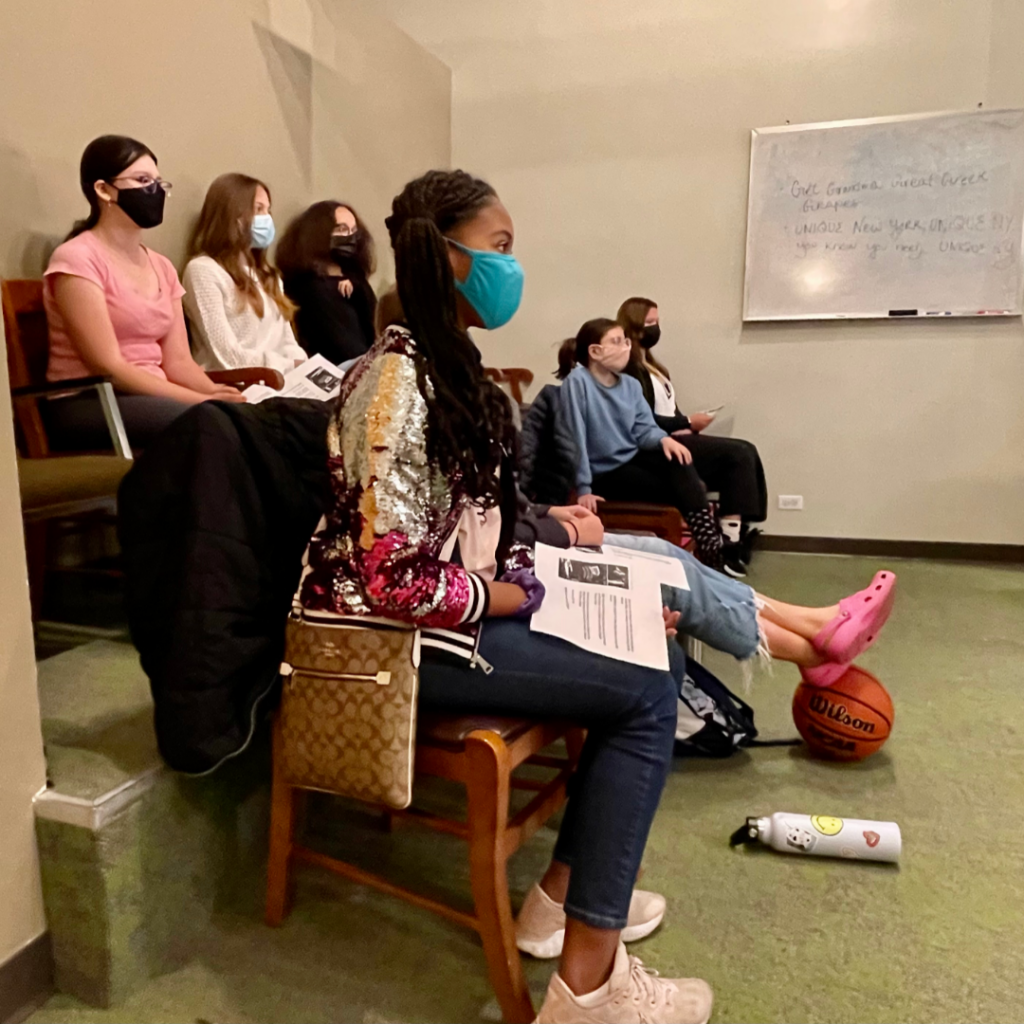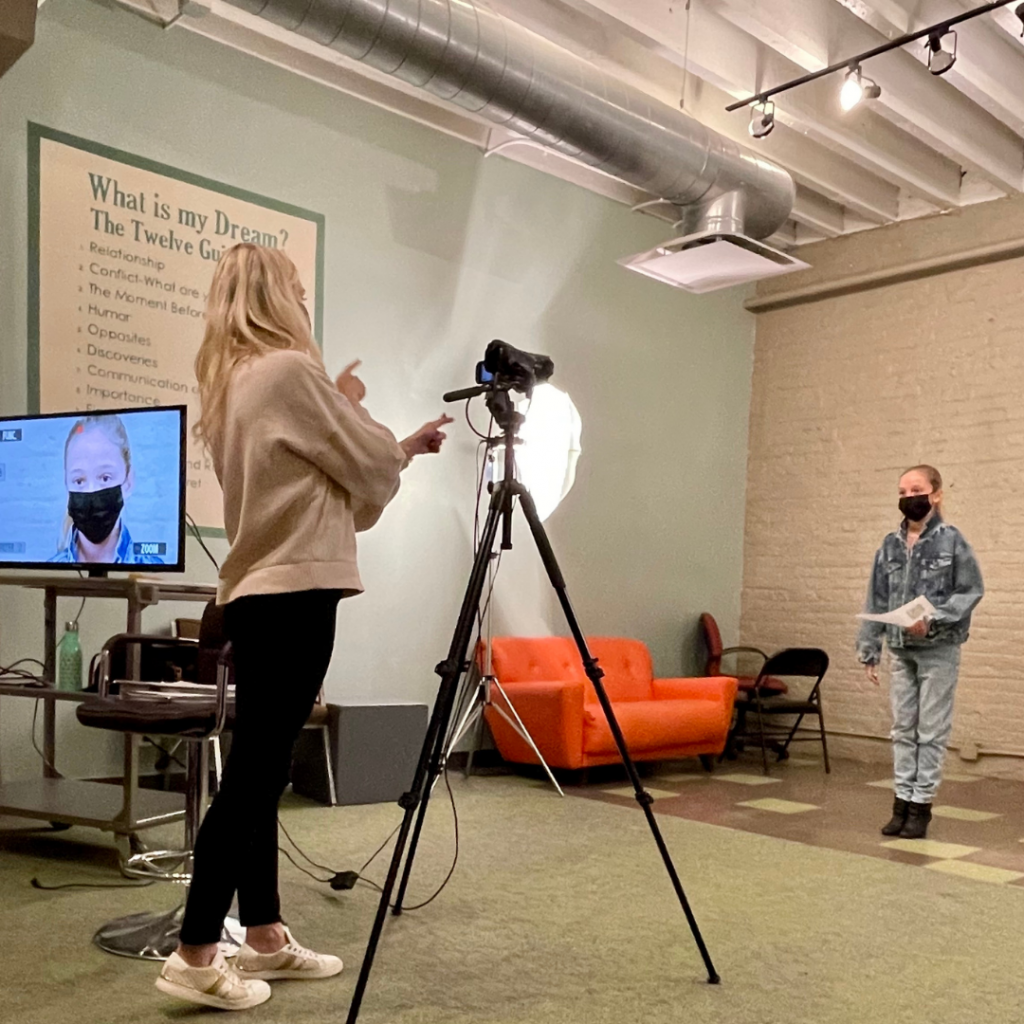5 tips to researching acting classes for kids…and avoiding scams!
Are you a parent who has a kid constantly putting on performances for you? Imitating commercials on TV? Have you been the camera operator for your child “vlogging” the next viral video?
You don’t have to know the ins and out’s of the entertainment industry in order to find the best acting classes for kids. However, there are a few important points to keep in mind before you spend any money enrolling your child in a class.
Acting Studio Chicago is here to help with 5 tips to help you find the best acting classes for kids…and most importantly…avoid being scammed! So, before you find yourself thinking, “To enroll, or not to enroll…that is the question,” check out this helpful guide to finding the best acting classes for kids.
5) Do Your Research and Ask Questions
When researching acting classes for kids, it’s important to know that credible acting schools and programs will be open to your questions and make it easy for you to learn more about their classes.
Are they easily available by phone or email to answer your questions? Can you visit their space? Do their online reviews seem real? Is the feedback positive or negative? What acting methods do they teach? Does their social media look legitimate and up to date? Do you see photos of their students working in their classroom or studio space?
You may even want to call an agency and ask where they recommend young actors begin their training. While agencies try to remain unbiased, you will be able to narrow down a few choices for your child based on the responses you get from agents. This will also give you an idea of the type of training agents look for in their talent, should your child hope to pursue acting professionally.
Another good thing to watch out for is age groups. For example, child actors are going to work differently than teen actors. Not only that, but their acting material is going to be different too. Be wary of acting programs that lump a large range of ages together into a single class. A single class that is ages 7-16 may not be well catered to your child’s education.

4) Get To Know The Teachers
When looking at an acting class on a school’s website, make sure the teacher of the specific course is listed. The school should also provide a bio of each of its teachers. If the school is not upfront about who will be teaching your child..it’s a big red flag.
Denise Simon, a New York-based acting coach, teacher, director, casting director, and talent manager brings up a good point.

“Learning to act takes courage as [children] share personal stories, take risks with their feelings and try new things in their performance, so it is essential that their learning environment be safe. While giving young students feedback, a good teacher will also be supportive and encouraging.”
You can read more about her advice when searching for youth acting programs here.
3) Beware of False Promises and Learn to Spot a Scam
If it seems too good to be true, then it probably is.
If an acting school or program offers you the world and more – with promises of making your child’s dreams come true overnight or sooner – consider that a big red flag!
The industry is not inaccessible by any means. However, it is designed in a way intended to avoid major conflicts of interests amongst everyone involved.
Unfortunately, many “businesses” – and con-artists! – take advantage and feed off the dreams of parents and children who are new to the acting business and have no real understanding of how things work behind the scenes.
In order to protect yourself and your child, it’s important to have a basic understanding of how the industry works. At Acting Studio Chicago, we like to refer to the hierarchy of the biz as, “The Industry Food Chain“.
The Industry Food Chain….

REMEMBER: AGENTS AND MANAGERS DO NOT TAKE A FEE UPFRONT. THEY ONLY GET PAID WHEN THEIR ACTORS GET PAID.
If a school, business, “agency”, or “manager” asks you for money upfront, and in exchange promises you/your child anything such as – agency representation, guaranteed acting work, or guaranteed opportunities to be on major TV networks – our advice would be to tread very, very lightly.
The only people in the industry who can send your child out on auditions are agents. Meanwhile, the only people in the industry who can get your child cast on a major network are Casting Directors.
Casting Directors work closely with agents, as well as with producers, network executives, and ad agencies to find the perfect person for a project. Only agents can submit actors to Casting Directors…unless you self submit for opportunities.
Casting directors get paid by the client who hires them to cast their project. Unlike agents, casting directors take no direct salary from the actors that they cast. This avoids conflicts of interest and establishes clear boundaries within the industry.
So. like we said…if it seems too good to be true, it probably is.
2) Tuition and Determining What’s Reasonable
An average acting class will be around $350-$450 depending on the length and time of the course.
Some things to consider and ask are: How long is the course? Are there any industry professionals that will be guest teaching or speaking? What skills does the class description tell you will be taught? (i.e. monologues, material for a showcase, stage-fighting, etc.)
Some specialty classes will cost more than a monologue class, as there will need to be more time spent teaching and practicing those skills. Visits from specialty instructors and/or industry professionals will also be reflected in the course price. Some programs may even have some scholarships available to you, so be sure to ask!
Be wary of services that advertise “entire packages” featuring classes, headshots, reels, monologues, and “showcases”. These “packages” are often incredibly expensive – far more expensive than hiring private professionals on your own – and don’t allow for any creative feedback from the talent. Remember, an actor’s career is THEIR career. They (or their parent) should have 100% freedom to determine who their money goes to, and how their child is presented professionally.
1) Trust Your Gut
A good business will want to ensure you understand where your money goes and that you are satisfied with the provided services. The same goes for youth programming and acting schools.
Programs that are looking to scam you will make it hard to keep in touch and may leave you feeling confused about what the program is offering. It’s your money and your child’s experience on the line, so we encourage you to ask as many questions as you need in order to feel comfortable.

At Acting Studio Chicago, we firmly believe that Acting Skills are Life Skills. Regardless of if your young performer is looking for a fun new thing to learn – or wants to become professional actor – a quality youth acting class is sure to provide your child with communication and critical thinking tools that they will use for life.


